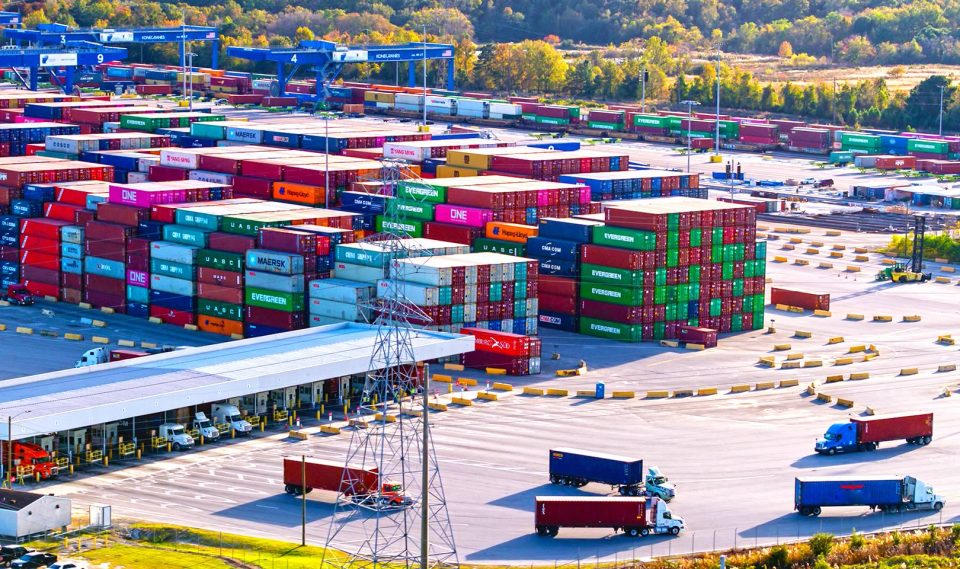
How Vendor Managed Inventory (VMI) Strengthens Supply Chain Resilience and Collaboration
To optimize inventory management, retailers and suppliers are increasingly turning to Vendor Managed Inventory (VMI) tools that transfer the responsibility…
Bona: Building Operational Excellence with Solochain WMS Read the use case

While the year 2022 saw the return of growth for certain sectors of activity and the emergence of new difficulties for others, everyone is witnessing the instability of the global context, with increasing uncertainties and constraints. For 2023, the fourth edition of the Supply Chain Risk Barometer, conducted by the Kyu Associates firm in partnership with France Supply Chain, Amrae, and the Arts et Métiers school, reveals that new disruptions are indeed expected by economic actors in the supply chain. The top concern is the overall capacity problem of supply chains due to shortages of materials, components, and workers.
These shortages can be explained by several factors, including the Covid crisis, which led to a significant slowdown or halt in certain productions, as well as recruitment difficulties linked to employees’ new expectations for more meaning in their work environment, better working conditions, and compensation.
Another source of concern is the rising costs, mentioned in second place by the respondents. With the rebound in consumption following the health crisis, inflation has returned. This inflation is fueled by the increase in raw material prices, mainly due to certain shortages, and the rising costs of energy and transportation, linked to the war in Ukraine. In response, digital solutions such as TMS (Transportation Management System) from Generix can optimize transportation budgets, including referencing new carriers to better control costs. The specter of business failures looms as many supply chain actors are unable to pass on these cost increases to their selling prices, and some energy-intensive companies are facing significant profitability issues. Particularly, small and medium-sized enterprises (SMEs) are also concerned about cyber risk, ranking third among worrisome threats. SMEs are often targeted by hackers as gateways to major accounts for which they are suppliers, and they may not always have the means to protect themselves. Moreover, the risk is amplified with the increasing digitization of the Supply Chain.
Current geopolitical risks are also a subject of apprehension for many actors. The Russia-Ukraine conflict heavily impacts supply chains in several sectors destabilized by faulty supplies—whether it’s Russian gas, Ukrainian cereals, Russian fertilizers for agriculture, iron ore, cast iron, lithium, titanium, and more.
Beyond shortages, this conflict fuels inflation and could lead to increasingly protectionist policies that harm international trade. Tensions between China and the United States regarding Taiwan could also have significant consequences, as Taiwan represents 65% of the global volume of semiconductors.
In fifth place, the barometer highlights logistical risks. Maritime freight remains under strain, disrupted by strikes in several ports and an overload of work to catch up on delays caused by the health crisis. As for road transport, it faces increasing demand due to the rise of e-commerce but simultaneously suffers from a shortage of qualified drivers due to low wages and difficult working conditions. Implementing transport optimization solutions, such as the 3PL Portal developed by Generix, allows for more organized freight management with peace of mind.
Continuing with the ranking of risks anticipated by Supply Chain actors, we have the volatility of demand, forcing companies to juggle between shortages and excess inventory; the scarcity of certain resources, reinforcing the need for them to diversify their supply sources; and the climate crisis, which witnessed extreme events worldwide in 2022 and spared neither logistics infrastructure nor the production tools of the supply chain.
At the bottom of the risk ranking for 2023, the presence of the pandemic persists, with the risk of contaminations originating from China, and the risk for Supply Chain actors of not being able to implement CSR strategies that comply with increasingly restrictive regulations. Digital solutions also exist in this regard. The Collaborative Replenishment tool from Generix Group enables the improvement of CSR policies through the monitoring of various indicators (reduction of energy consumption, distance traveled, waste, consideration of expiration dates, etc.).

To optimize inventory management, retailers and suppliers are increasingly turning to Vendor Managed Inventory (VMI) tools that transfer the responsibility…

In an ever-evolving logistics environment, agile and precise warehouse resource management is essential to remain competitive. With increasing volumes driven…

France’s electronic invoicing reform relies on a Y-architecture, where Partner Dematerialization Providers (PDPs) play a central role in issuing and…

Work with our team to build your ideal supply chain software stack and tailor it to your unique business needs.